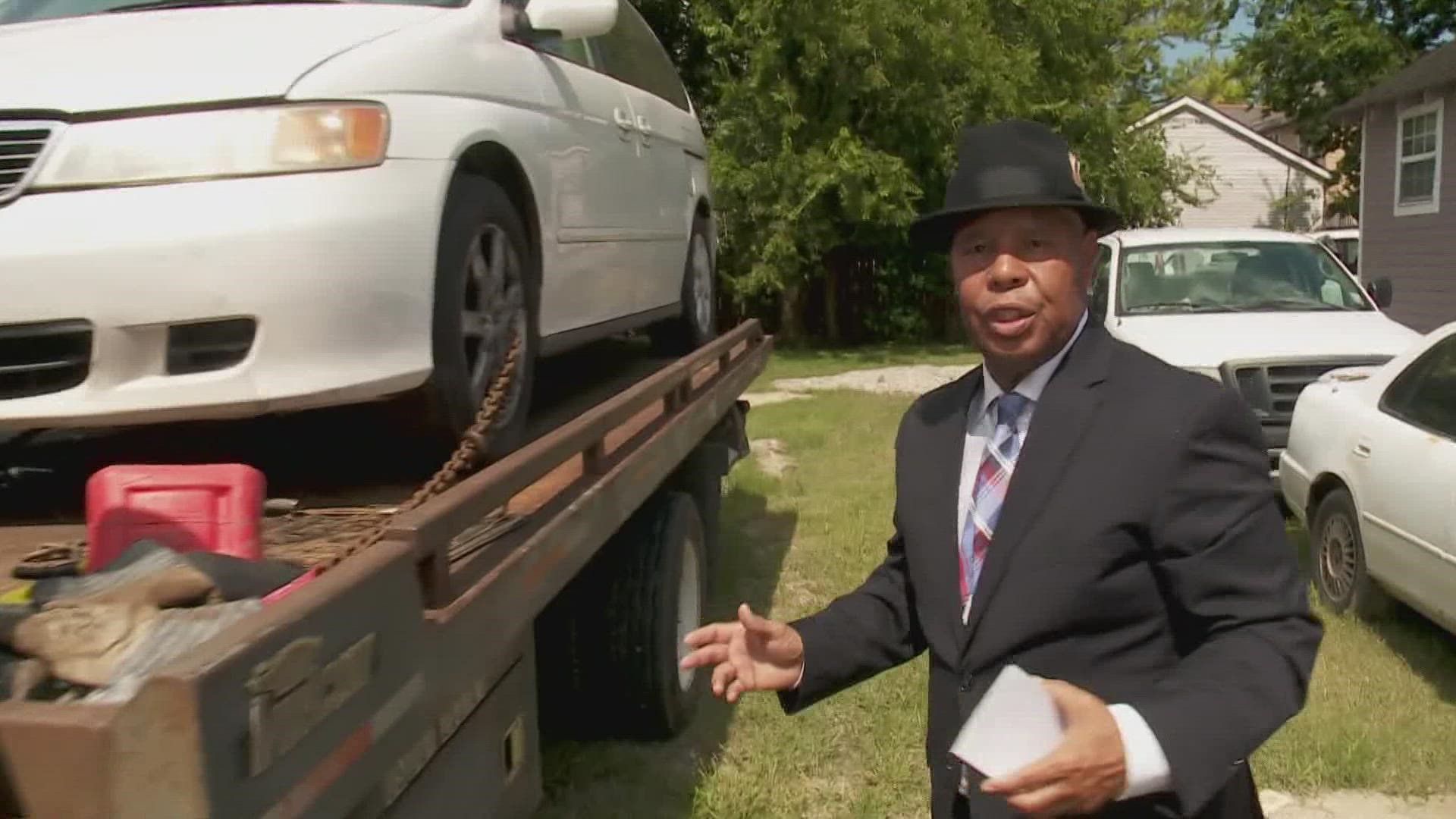NEW ORLEANS — A Lower Ninth Ward man said he scrimped and saved money for more than 20 years, stacking bills in a Mason jar. He worked for FEMA cleaning up his neighborhood after Hurricane Katrina, helped make muffalettas at the legendary Central Grocery in the French Quarter and, more recently, manned the shoeshine stand inside the Roosevelt Hotel.
Now Kermit Warren’s life savings are in the hands of the federal government after a civil seizure and he is battling in court to get his money back.
Warren, 58, had been laid off from his shoeshine stand in the Roosevelt Hotel due to the COVID shutdown when he decided to buy a truck to expand his salvage business. So he took decades worth of savings – more than $28,000 – and flew with his son to Ohio to buy the vehicle.
When he saw the truck wouldn't work, he and his son went back to the Columbus airport to return home.
“I got through the screening with the TSA lady,” Warren said. “She asked me what was in my bag. I told her I have close to $30,000 cash money. She said it was OK for me to fly with that.”
But then federal drug enforcement agents were alerted and they took a different position. They saw the one-way plane tickets, some nervous answers from Warren, and a drug-sniffing dog responding to the cash. When confronted, Warren said he panicked and falsely identified himself as a retired police officer.
“Unfortunately, TSA and DEA have a see cash, seize cash policy,” said Dan Alban, an attorney representing Warren on behalf of the Virginia-based Institute for Justice.
“I said sir, I hadn't done anything wrong,” Warren said “You are not charging me with a crime. Why are you just robbing me of my hard-earned cash?”
Warren and his son were not arrested. But the agents had suspicions that the money might be connected to illegal drugs, so they seized it under federal asset forfeiture laws. Unlike criminal charges in which a defendant is innocent until proven guilty, Warren must now fight in court to get it back.
Federal authorities seize more than a billions dollars in assets annually, often after making an arrest, but not always. Alban of and the Institute for Justice are not only representing Warren, but also trying to reform the policy.
“He has to go to court to prove his innocence in order to get his own property back,” Alban said.
With his life savings still in the hands of the government, Warren said he is struggling to pay his bills. About all he has left is his modest Lower 9th Ward home and his salvage truck.
“It's just been really hard for me to pay bills and buy groceries,” Warren said. “It took me 25 years to save up that money and it was taken away in less than 10 minutes.”
As a deacon of his church, Warren says he is relying on his faith that he will eventually get his money back, aided by a legal fight he said he never imagined he'd be fighting.
WWL-TV reached out to the U.S. Attorney's office in Columbus, Ohio that is handling the forfeiture case. The office has not yet responded.
► Get breaking news from your neighborhood delivered directly to you by downloading the new FREE WWL-TV News app now in the IOS App Store or Google Play.

